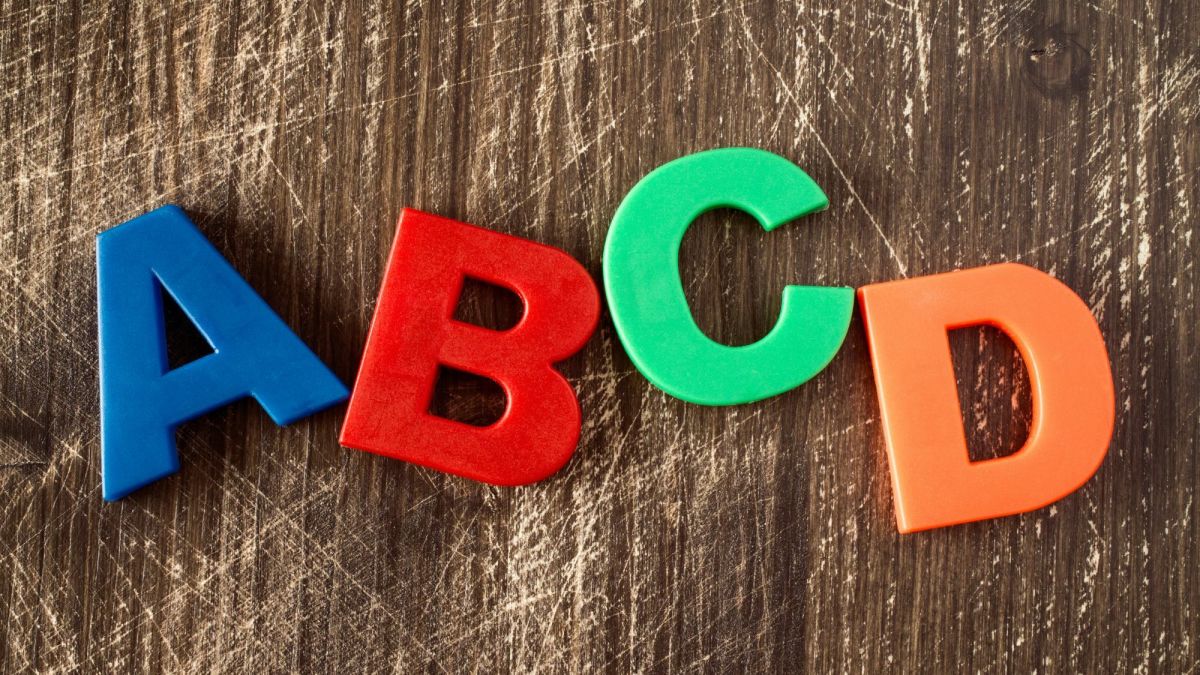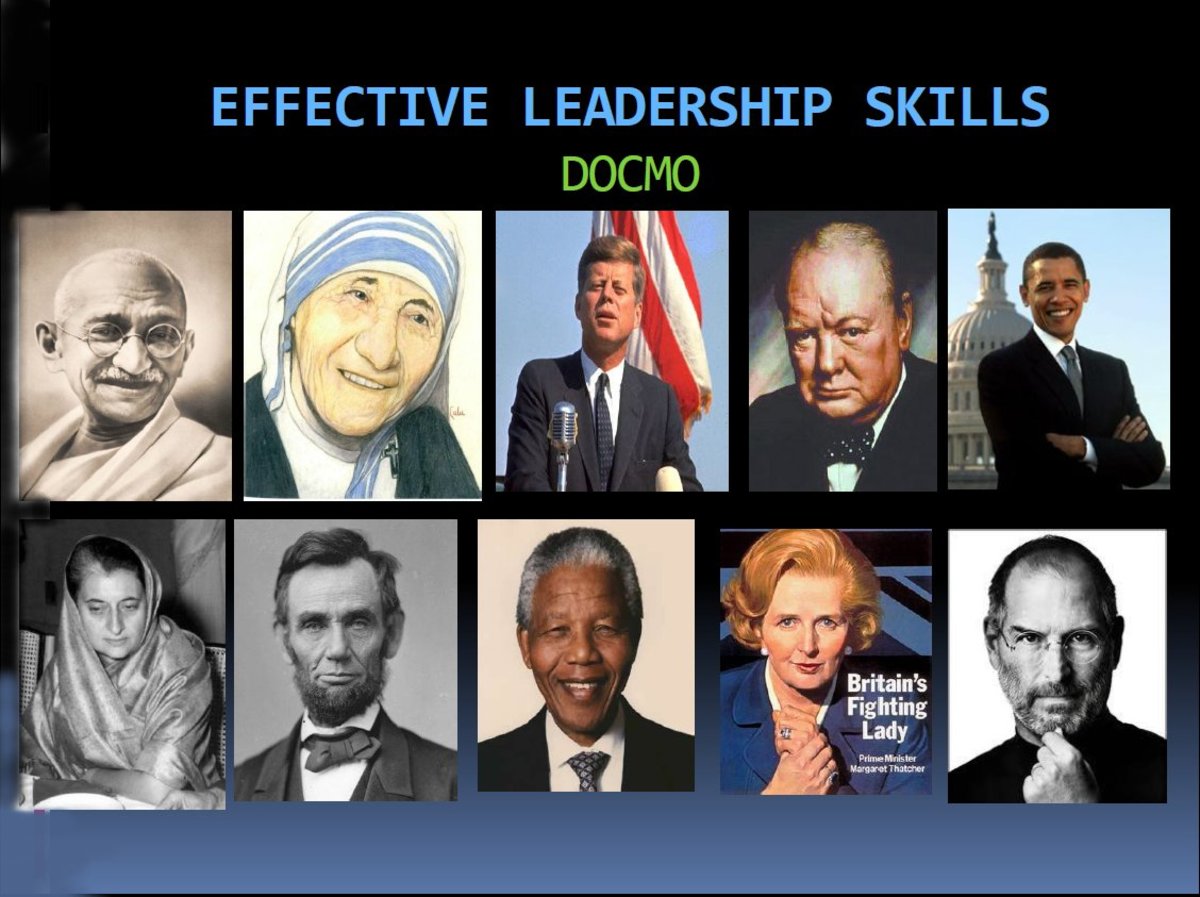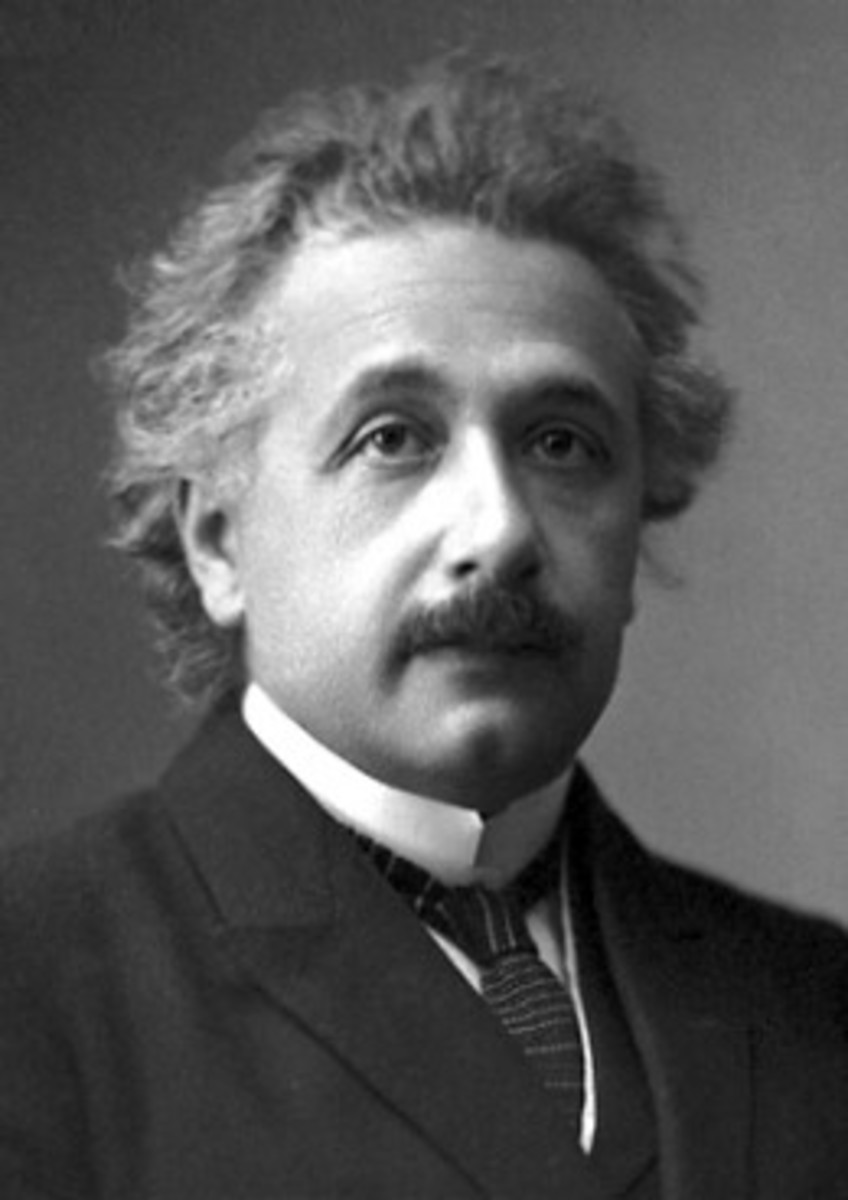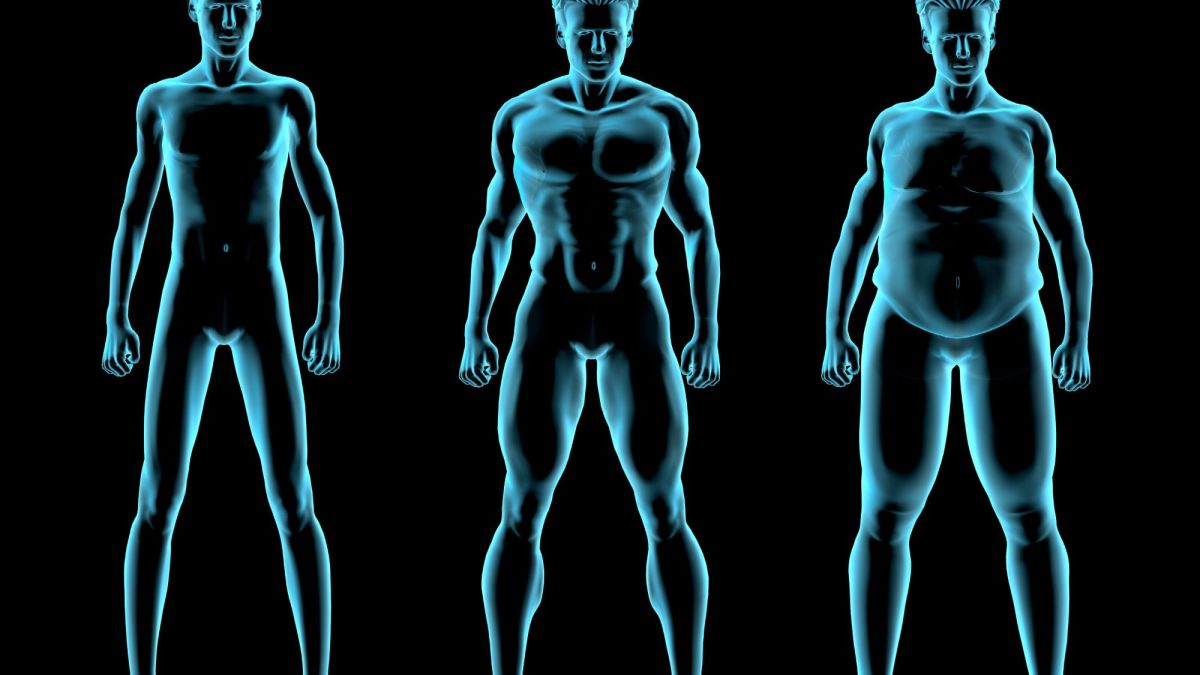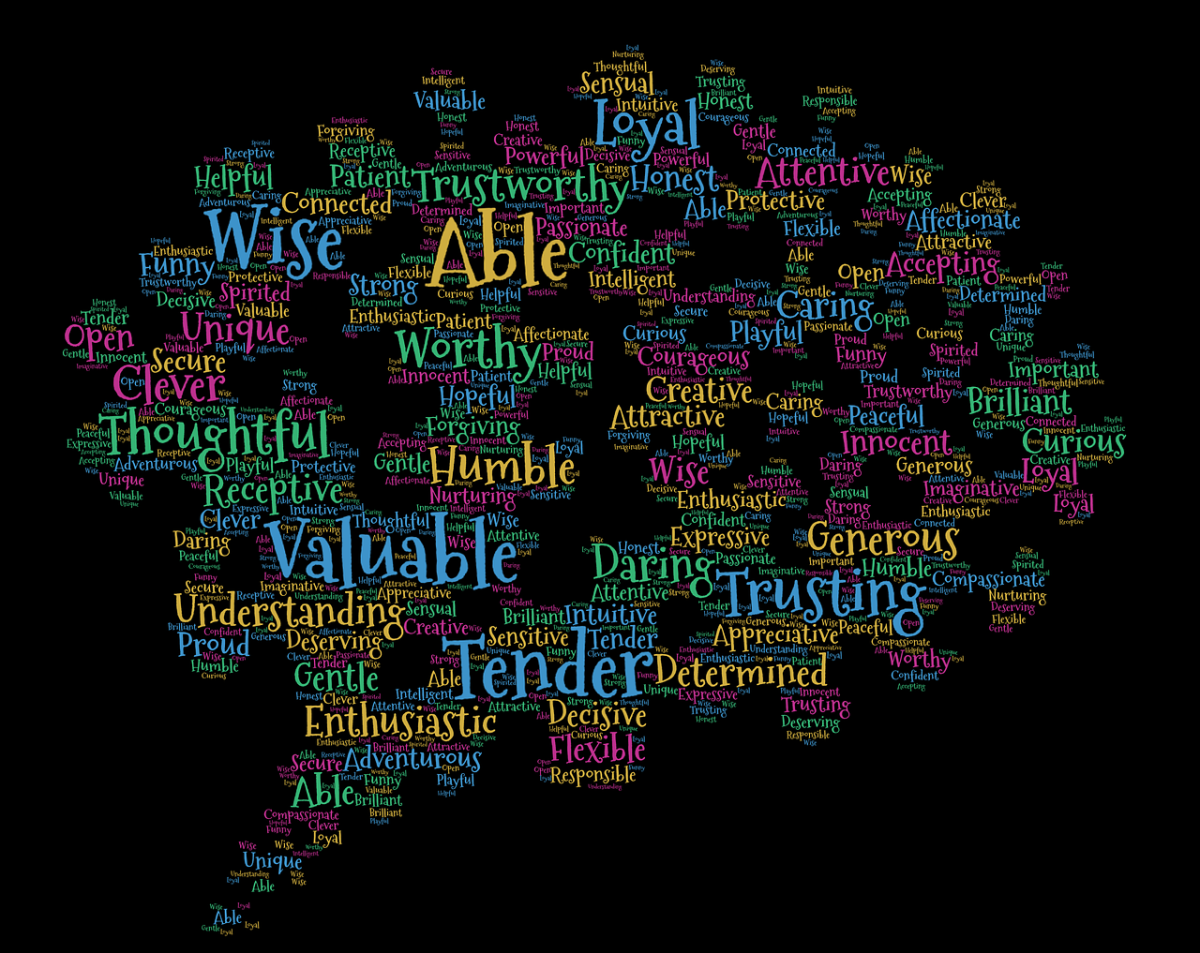How to Develop Your Own Personality? Understand Yourself First, Using Myers-Briggs MBTI [8]
Know Thy Self
It seems to me that before you can hope to "develop" your personality, assuming you even need to, you must know what you are working with. In other words, know thy self. There are an astounding number of forces and factors which shape and determine what your personality is today. Having said that, the two fundamental factors and stages of personality development are fairly well understood. Your genetic make-up is the first thing that determines personality. It sets the boundaries your unique personality may take. This raw clay is then shaped by the environment in which you grow up in your formative years. What finally determines your personality as an adult is actually the interaction of the environment with your genetic clay in the first eight years or so of your life. Research has shown that for most people personality traits start becoming developed as young three years old (aggressiveness, shyness) and more as they get older. This is not to say that personality does not keep developing. In fact new studies show that certain traits keep developing past 30 years old. But it does say that your basic personality is pretty much set in your formative years and barring traumatic events in your life, it will remain pretty much the same throughout it.
In one sense, then, an answer to the question of "How to develop your personality" is you can't. At least not in any substantial way. That isn't to say, however, that personality cannot be situationally managed. But, in order to do this you must know what it is that you have to manage, what are the results you seek. and what kind of personality traits can achieve those results.
Myers-Briggs Foundation
One Way to Understand Your Personality: Myers-Briggs
Psychologists, psychiatrists, and scocial scientists have spent an extraordinary amount of time and money trying to analyze human personality. Many tests have been developed to measure different aspects of personality for differing purposes. I would like to present one of those protocols in this hub. The test is called the Myers-BriggsType Indicator (MBTI) after its creators, Katharine Cook Briggs and her daughter, Isabel Briggs Myers and is very well known and respected in both the corporate as well as the scientific world. While Wikipedia says it '... measures preferences in how people perceive the world and make decisions ...', it really does much more than that.
To keep things simple the MBTI measures four aspects or "dichotomies" of human personality. They are:
- Attitude: Extroversion (E) vs Introversion (I)
- Perceiving Functions: Sensing (S) vs Intuitive (N)
- Judging Functions: Thinking (T) vs Feeling (F)
- Lifestyle: Judgement (J) vs Perception (P)
It is how these dichotomies (Type Characteristics) combine and the clarity an individual has in their preference between one Type or the other that give insight into personality. The science behind all of this is complex and obtuse (think Jung) but when the studies are done and the conclusions are drawn, very interesting and useful pictures develop.
One must understand that this is in effect a self-scoring evaluation. The person taking the test answers a long series of questions and chooses between one of two choices as to what their preference is regarding the subject of the question. The results are scored and presented with an indicator of how clear the person was as to how they saw themselves for a particular Type. For example, I am an INTP (Introvert, Intuitive, Thinking, Perceptor). As it turns out, I am very clear as to my Introvert, Intuitive, and Perceptor Type. On the other hand, I have a hard time distinguishing between whether I am a Thinker or a Feeler Type.
Now, what does all of that mean?
E vs I
The combination of the Types above purport to explain how you think you act in the world around you ... what you think your personality is. Each Type speaks to a different aspect of personality.
Extraversion (E) and Introversion (I) (original spelling) describe what your attitude is toward life; where you like and feel comfortable being. Extraverts like to operate in a world of action, people, and things. They draw their energy from this while Introverts expendtheir energy in this kind of environment. Instead, Introverts like to be in a world of ideas and reflection, a place where Extraverts quickly get bored. Action and people are food for Extraverts while thinking and philosophy are food for Introverts. I can speak from personal experience regarding expending energy in the Extraverts world, I can't spend more than an hour at a party that has more than 10 people at it without being totally bored and wishing I could get away.
Now, this isn't to say that an Introvert can't act in an Extraverted way (or the opposite) when the need or situation arises. For me, when I am in my work environment, I can become quite extraverted. When leading a conference on a program I ran, I gained energy from the interaction during a session with almost 100 attendees. As soon as a break was called, if there wasn't business to discuss, I immediately reverted to my good ol' Introverted self.
S vs N
Sensing vs Intuitive. This Type is considered a "perceiving" function. Said another, longer way, this Type is how you perceive the world around you; how you gather your information. An S Type person relies on the outside world. They, to one degree or another, get there informaton from their senses. If they can't taste, smell, see, feel, or hear it, it doesn't exist for them.
Intuitives, on the other hand, look inward. They rely on more abstract or theoretical information that they can associate with other information they already know or will learn. Knowledge seems to appear after some sort of internal synthesis takes place.
.
F vs T
Here we consider how decisions are made; the judging function Type. Once information is received, it must be acted on. People tend to have a preference toward using their heart, the Feeling (F) Type, in making a decision or using their head, the Thinking (T) Type. Again, this is a preference toward one method or another. Here, I lean toward the Thinking preference but am not clear about it. In reality, I want to base my decisions on logic but frequently find myself basing my decisions on my heart. For the most part, if the decisions are financially related, I am a T, if it is social, I am a F. For the other three Types, on the other hand, I am very clear in my preference.
J vs P
In a way, Judgement vs Perception is one of the most interesting of the Types. The titles are, to me at least, deceptive. Once explained however, you should have no trouble identifying these types, especially if they show a clear preference toward one or the other.
The first three Types were Myers-Briggs' adaptations of theories from Carl Jung. This J/P type, however, deals with Lifestyle and is their own creation. The J or P Type is an effort to show which Function Type (I-S or T-F) a person prefers to use when dealing with the outside world. So, if a person is a J Type, then he or she prefers using the Judging functions (T or F). P Types, on the other hand, prefer the Perceiving functions (I ot S). To use some examples from Wikipedia a T-J Type appears to be Logical and an F-J Type appears to be Empathetic. On the other hand, S-P Types appear to be Concrete while a N-Ps appear to be Abstract. As a group, Judging Types like to have matters settled while Perceiving Types like to keep their options open.
To illustrate this last statement let me relate a short anecdote from a management class I attended many years ago. The class size was about 30 to 35 government first-time managers. We were broken into four groups of about the same size. As it happens, there are many more Js in the world than Ps and the best we could muster was one group of Ps. I, of course, am in that group. Our task was simple - Plan a trip to Hawaii in the next 30 minutes. When all was said and done our group managed to agree on an itinerary that included the day and time we left, the day and time we came back, where we would stay, that we would use credit cards to finance everything, and each family would get their own rental car. The rest of the details would be figured out once we got there. We were proud of what we accomplished.
The other three J groups, needless to say, had detailed plans. One group went so far as to present their itenerary in 6-hour blocks!. We Ps just shook our heads in amazement knowing their well-laid plans will change, lol.
Putting It Together (Part 1)
From the last section, you can see where we can begin to develop ideas of who we are by using tools such as the Myers-Briggs MBTI or similar devices. The MBTI has lots of layers to it which there isn't space to go into but I will briefly use an example to illustrate how tools like the MBTI can be used to help develop one's personality, at least temporarily.
In the first example, I will use my business partner and myself. We are total opposites which, of course, has led to many a pitched battle over the last 10 years. We both work on understanding our own and each others personalities and take that information into account when dealing with each other. We have both tried to modify our own personalities but as I said at the beginning of this piece, that is hard to do. Nevertheless, we keep trying.
In the following sections I am going to take a few of the characteristics of each type that interfere with our relationship and discuss how we try modify them to improve how the company functions and how we function as a team.
The ESFP
My partner is an ESFP and I am an INTP. Except for my T, we both max out the scale in our preferences in each Type. She is the CEO and I, as the CFO, keep the company running so that she can do her job. We each own about 50%. (Note - Neither of us are totally suited for our job, given our Type. Nevertheless, we are happily successful.)
If you look in the many books on the subject you will find that people with ESFP Type personality exhibit these five characteristics, among many others:
-
They are Extraverted and get their energy from crowds and live in the external world
-
They have very strong interpersonal skills that lead to sympathy and concern for others and are unfailingly warm and generous with their friends, and they generally treat everyone as a friend. ESFPs love everybody and everybody loves an ESFP
-
They take in their information in from their five senses a literal and concrete fashion; otherwise, it isn't real
-
ESFPs hate structure and routine
-
They dislike theory and future-planning.
These five characteristic fit my partner to a T! To get our business going, we needed a person who could put together a large network of people over a wide area of the country, get them focused on serving our clients well and then keeping everybody happy. The first three characteristics were just what the doctor ordered to accomplish that mission. However, for the long-term health of the company, she must overcome, i.e., modify the last two. That is where I come in.
The INTP/INFP
I include both of these Types because my decision making preference is not always T or Thinking Type. In social settings my F or Feeling Type seems to want to come through. In either case, you will see there is a marked difference in personality from an ESFP. Listed are a few positive and negative characteristics that impact our business and team building.
- INTPs are is focused internally, in their minds, where they deal with things rationally and logically and receive their information intuitively
- They understand complex systems and the interrelationships between the different parts
-
They always look for ways to improve things and are futurists
-
INFPs are focused on making the world a better place for people.
-
They make very good mediators, and are typically good at solving other people's conflicts,
-
They don't like to deal with hard facts and logic. Their focus on their feelings and the Human Condition makes it difficult for them to deal with impersonal judgment and often tie themselves into logical knots when in a high stress verbal battle. But they often win when the field of play is the written word.
-
Both INTPs and INFPs are good listeners and put people at ease, although they may be reserved in expressing their own emotion,
-
Both may seem distant to others while spending time inside their minds musing over theories.
-
Both hate to work on routine things
-
Both do not like to lead or control people, in fact they prefer solitude
It is the first four characteristics, especially the second one, and the suppression of the last two characteristics while on the jobthat allow me to do my part in making our company successful. I am pretty sure that if you showed this list to any of my friends and asked them who does this remind them of, most would come up with my name. By keeping things on a business level and the stress level low with my employees, I can get around the obvious internal conflict I have between my F and T sides.
Personality Corner
Putting It Together (Part 2)
The ENTJ (Extrovert, Intuitive, Thinking, Judger) is often seen in successful leaders and CEOs. Where INTJs (Introverted, Intuitive, Thinking, Judger's) may be more suitable for the behind the scenes role for organizing a company and keeping it together from the big picture point of view. Niether of us fit into these categories. So, what does that mean, in order to have a chance at being successful.
The ESFP and INTP Types are our Preferred mode of operation; what we do when we are not thinking too much about it. THerefore, we must first become aware of what our personality normally is; what is our comfort zone. Then we need to see what our personality needs to be to get the job done.
For example, the CEO is the leader of the company. Consequently, one of the more important traits they should possess is the ability to visualize where they want the company in the long-term. Vision, as you have seen previously, is normally not in the cards for an ESFP. In fact, this is what I find with my partner. She has very hard time planning for the future even though she knows she needs to and wants to do just that; it simply will not come naturally.
How do we compensate for this? In this case we don't try to modify her personality, you have a knack for having vision or you don't. But you can supplement it, which is where I come in. Vision is natural for an INTP. So, we sort of work through a question/answer routine to help her get from where we are now to where we logically ought to be in the future.
Now this is complicated by another contradiction in our Types, she is an S and I am an I. When she asks me to explain where I got my information I am somewhat stumped. An intuitive just knows it. In reality, it is based on information received from the five senses but it is processed internally, under the radar so-to-speak, and the answers somehow make themselves known. This is totally unacceptable to a Sensor; if she can't touch, feel, see, hear, or smell it, it doesn't exist. My challenge, therefore, is to prepare myself and go back and figure out where my answer came from so that I can explain it. Does this seem familiar to anyone?
But why, you might ask, is she even the CEO, if she doesn't know where to lead the company and I have to do all of that work? Isn't that one of the major functions of that job? Well, yes it is but it isn't the only major function of a CEO. It is the other functions of a CEO for which she is very well suited as an ESFP and would drive an INTFP to distraction or worse. Those functions concern working with our clients, contractors, vendors, and employee's. She sells the services we provide and makes sure we provide the services we are selling in the most professional manner possible. Oh yes, I forgot to mention, she is also the expert in the service we provide.
On the other hand, as an INTFP, I like to work with systems and structures, develop ideas and plan for the future, set things in motion, be the power behind the throne. All I ask in return is to keep my contact with people to a minimum. (Oh, yeah, I forgot to mention, I am in charge of HR as well, sigh.) While she keeps the business coming in and making sure we provide the promised service, I keep the business operating so that she can keep her promises. If either one of us fail, the company fails. I think I can safely predict that if I was an ESFP or she was an INTP as well, there would be no company.
It isn't just ESFPs that have some shortcomings, so do INTPs. Where ESFPs have trouble with Vision, INTPs/INFPs have trouble with finishing what they started. As an INTFP, I love to do all of that stuff I just mentioned in the previous paragraph, even the HR, BUT, one major characteristic of my Type is that once we have set things in motion, we are done; we are on to the next project. I have exhibited this trait in spades in the last 50 years.
Of course, that doesn't bode well for the stability of the company if I just pick up and leave. What does that mean? It means it is time for some personality modification. I must make myself operate out of my comfort zone for a period of time, i.e., modify my personality. I find ways to keep challenging myself in the same job on a continuing basis so that I don't lose focus and interest.
Wapping It Up
As you can see, personality is very complex and once formed, almost permanent. Changing it in any meaningful way in the long term is extremely difficult, if not impossible. It is possible, in some cases, for the short term and only in certain circumstances, to modify your personality. You will be, in all probability, out of your comfort zone however.
Before you can do this, it should be obvious now that you must know what your personality is in the first place. There are many ways to do this. I have presented one, the Meyers-Briggs MBTI. Once you understand who you are and what your strengths and weaknesses are you need to see how you interact with your environment. Chances are there are some aspects of your personality that may be holding you back in certain areas. If it is important enough, it might be worth the effort, and it will be an effort, to analyze the situation and see what needs to be done.
On the flip side, I hope I have shown that knowing the personality of those you interact with can be very useful as well. If you know that I am an INTP, then you can expect me to appear to be a bit distant and maybe even cold and aloof, especially in social settings. We aren't known to get close to people very easily and we are scared to death at parties. I can tell you first hand that this is a real drag and very depressing to us INTPs but there really isn't much we can do about it.
For example, a fun-loving, party-throwing ESFP type asks an INTP to a party. Often we politely decline (even though we, or at least I, really do want to go). The ESFP can't understand why we just don't go and have fun like they do; it is so easy. (I wish!) If the ESFP understood how INTPs really worked then their approach might be to take our personality into account. They might not insist we stay very long (crowds suck energy out of introverts and we get physically tired) and make the effort to introduce us around and make small talk for us; something INTPs often find impossible to do. Why, you ask? I can only speak for myself, but mainly because my mind is blank, figuratively and literally. Nothing pops in there with which to start a conversation. Once a conversation gets going then many times the spigot turns up a notch and we function somewhat normally until that subject is exhausted. On my part, I associate with ESFPs for exactly that reason, hoping to use them as a conduit to other people in social settings.
I hope this helps you get the picture of how knowing each others and your own personality can help. This hub has just touched the surface of personality. It is a hugely complex area with layers upon layers of things that interact with one another. To ask "How do you develop your personality?" is really asking "What is my personality and where does it not fit well with my current environment and what can I do it about it?" Once you understand who you are with tools such as Myers-Briggs' MBTI, what it is you need to achieve,and what it is about you that prevents you from achieving your goal, then you can go about trying to figure what to change.
I hope you have found this hub as interesting as I did researching and writing it.
DEMOGRAPHIC Q# 1
Do you identify most closly with -
DEMOGRAPHIC Q# 2
Are you -
- Myers-Briggs (Personality) Type Inventory (MBTI) - A...
The MBTI has always fascinated me because it is 1) pretty accurate and 2) very informative about who we think we are and how those perceptions of ourselves interact with others and their perceptions. - Do You Know Who You Really Are? Socialist, Liberal, ...
- An Analysis of the Right-Wing Authoritarian Follower (RWA): Insight to Congressional Gridlock [100*]
Are you a Right-wing Authoritarian (RWA) follower? I have talked about this personality characteristic vis-a-vis our political arena in several of the articles I have written because I believe it plays such a major role in today's political debate. T - History of the Meyers-Briggs Personality Type Indica...
Personality type analysis first began with Carl Jung, which was later developed from theory into practice by Katherine Cook Briggs and Isabel Briggs Meyers, who were responsible for launching the test to widespread usage on college campuses and re-en - Personality Test: Myers Briggs 101
The Myers Briggs personality test, also known as the Myers-Briggs Type Indicator (MBTI) is a questionnaire that measures and names the way people perceive the world and make decisions. This very popular personality test is used by corporations and.. - My Son-In-Law's Birthday Party [49]
Being an Introvert, especially of the Meyers Briggs MBTI - INTP, I wax nostelgic at family gatherings. Not one to participate much, I observe and think and wonder; not much party material there, that is for sure. Anyway, here are some reflections fro - A Failure to Communicate - Myers-Briggs MBTI to the ...
The Meyers Briggs, MBTI provides an amazing insight into ones personality and that of others. Here is a slightly humerous look at one episode where the MBTI came in handy. - Myers-Briggs MTBI INTP Strikes Again: My Step-sons G...
A fun little hub about how an INTP spends his time when he is bored waiting for something to happen, in this case about 800 graduating college students crossing the stage receiving a well earned moment of recognition for their momentous achievement. - Extroverts - You Have It Made!! Us Introverts Just G...
EXTRAVERTS HAVE all the luck. For us Introverts, it can be a painful experience. The last of the guests of my grandson's second birthday party just left and I am exhausted!! And, I hardly did any of the work in preparing for the party or, in... - Insane Bosses - NT Personality Type in Employee Mana...
NT managers can see well on the mountain top at 50,000 feet, but be legally blind at ground zero. They can captain a ship--drive the crew to hoist sail and weigh anchor--but following each step on the map to find the island with the gold treasure and - A Failure to Communicate - Myers-Briggs MBTI to the ...
FOR those of you expectantly waiting on the edge of your seat for another hard-hitting, fact-laden, logically impenetrable diatribe against some new or old Conservative assault on us poor Progressives this... - Effective Team Building Requires Managing MBTI Perso...
People who make up a business or organization are human. When those people are expected to perform their jobs perfectly, all alone with no planned support, there is no recognition of the given that humans have... - Effective Team Building by Using MBTI Personality St...
When only 20% of the people in an organization are fully engaged in their particular job in the organization, most of the potential is left untapped. The skill and knowledge set of a team is identified as we determine these two things about the natur


